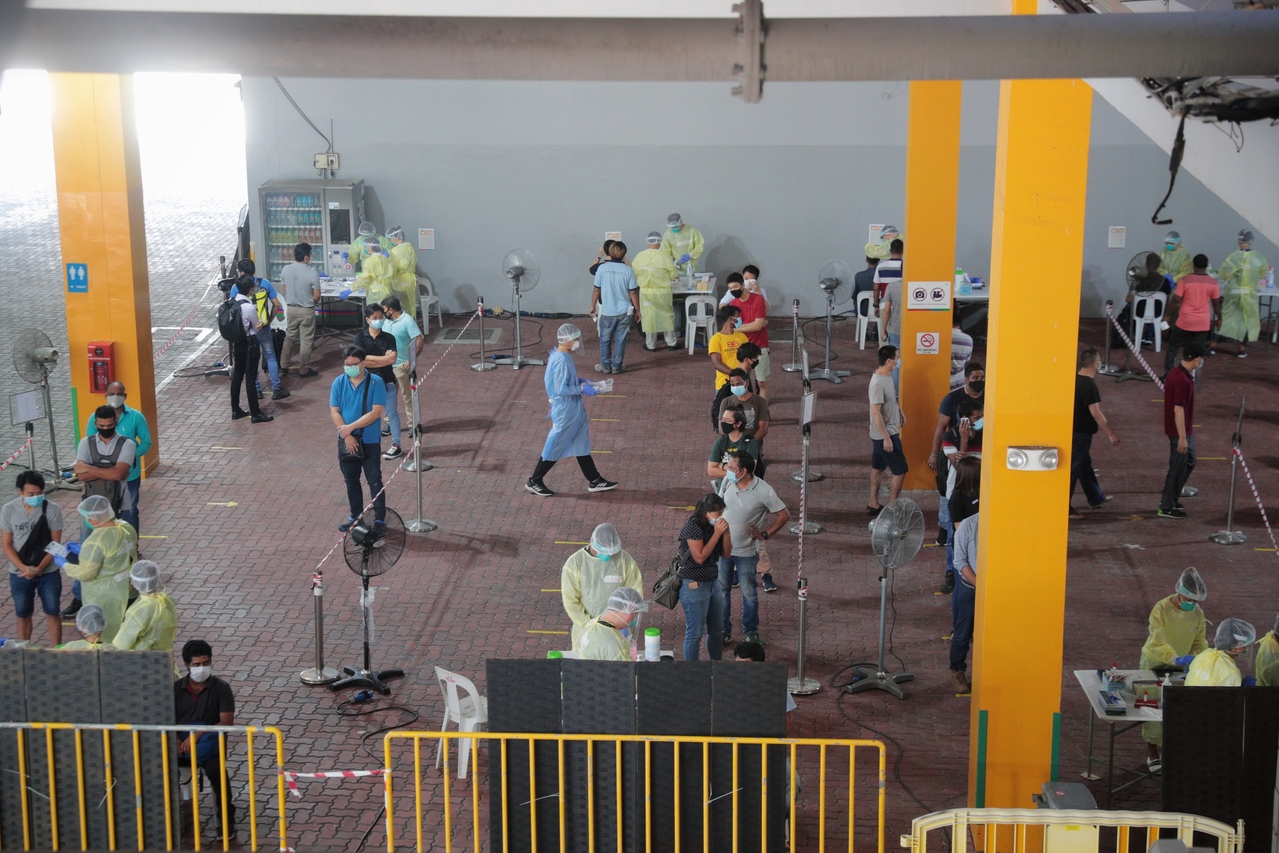Coronavirus: Authorities to cast wider net to identify close contacts of patients to stem spread of infection
Sign up now: Get ST's newsletters delivered to your inbox

The regional screening centre at The Float at Marina Bay on June 9, 2020.
ST PHOTO: JASON QUAH
Follow topic:
SINGAPORE - A fortnight into phase two of Singapore's reopening of the economy, the situation is stable and under control even as the numbers of confirmed cases have gone up.
But the local authorities will cast the net wider around every Covid-19 case to identify every close contact to stem the spread of the disease.
At a press conference on Thursday (July 2), Health Minister Gan Kim Yong and National Development Minister Lawrence Wong presented this new normal, saying it is necessary, as individuals will be out a lot more and will be in contact with more people.
This is not unlike what is happening in other countries that have similarly exited lockdowns, said Mr Gan.
From an average of about four new community cases per day in the week before, the number has gone up to about eight new cases per day in the past week, he said, with the majority of the cases picked up from active surveillance and screenings.
Nevertheless, the Government is closely monitoring the numbers.
"We want to detect cases early so that we can ringfence them to prevent large clusters from forming," said Mr Gan.
Mr Wong, who co-chairs the multi-ministry task force tackling Covid-19, said that Singaporeans should expect that more people will be potentially notified whenever there is a case, and that more people may be notified to go for testing. More people may then also be put on quarantine.
"We're casting a wider net around every single infected case," he said, adding that the authorities will move in a lot more "aggressively" and a lot faster to identify every possible close contact.
"That's the new way of operating in this phase," Mr Wong added.
But despite having enhanced testing and tracing capabilities, he urged the public not to let their guard down, and called on everyone to stay vigilant and take all the necessary precautions.
"We cannot take for granted that the system is foolproof," he said, adding that the system should not be pushed to its limits.

